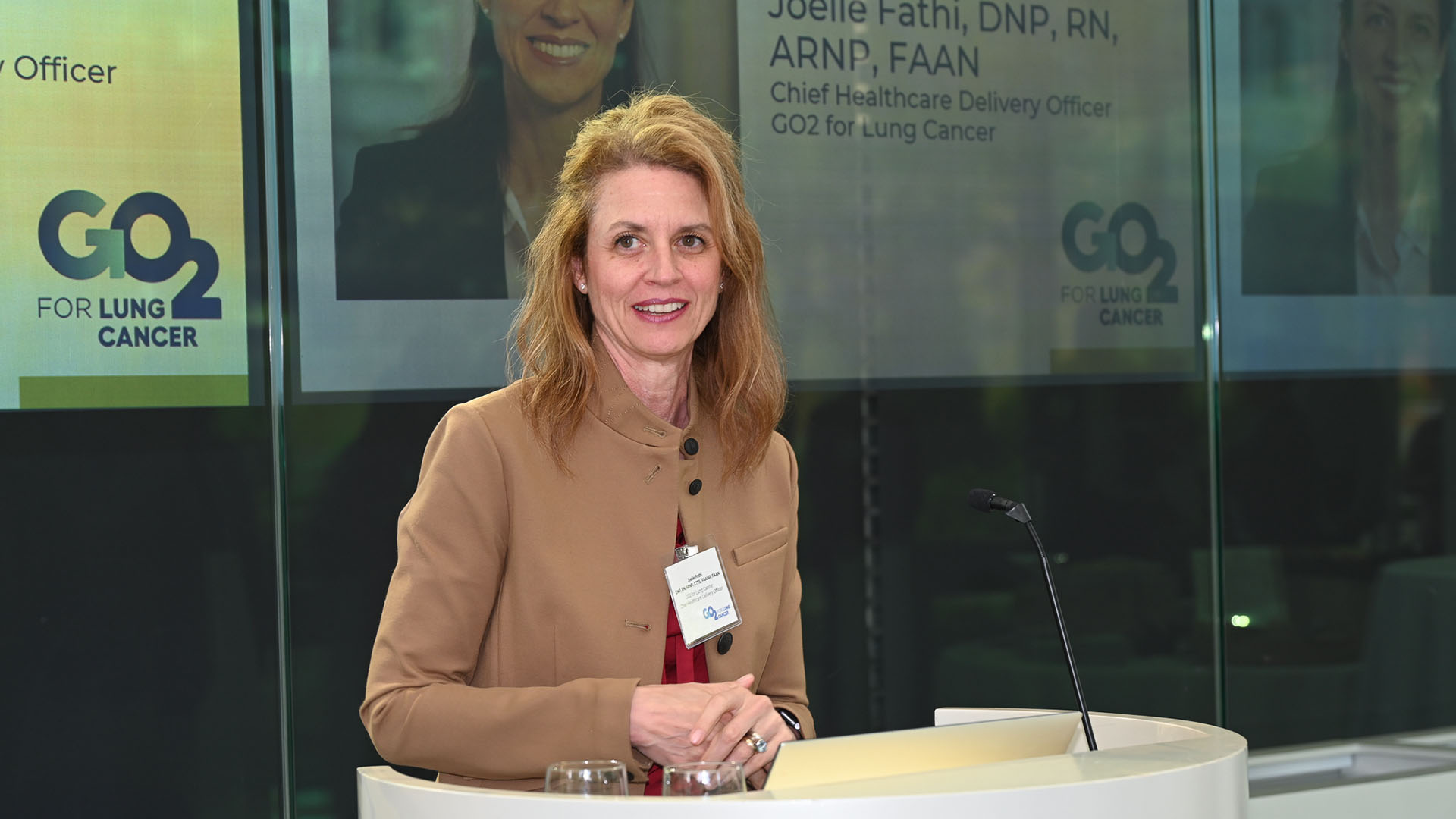
Kita Mitchum, a community health worker trained by Georgia Regents University (GRU) Cancer Center’s cancer-Community Awareness Access Research and Education initiative, known as c-CARE
Some of the nation’s worst cancer outcomes and disparities are found in Georgia, especially in the CSRA where minorities account for more than 50 percent of the population and 24 percent fall below the poverty level. In this region, high rates of smoking and exposure from nuclear and other industrial plants have translated into higher than average rates of lung cancer. About 500 new cases of lung cancer are diagnosed with lung every year in the CSRA and 380 people die from the disease.
Ms. Mitcham is a community health worker trained by Georgia Regents University (GRU) Cancer Center’s cancer-Community Awareness Access Research and Education initiative, known as c-CARE. The project is funded by a $1.74 million, three-year grant from the Bristol Myers Squibb Foundation’s Bridging Cancer Care™ initiative, which seeks to reduce the burden of lung cancer among minority and underserved populations in select southeastern U.S. states through innovative models of prevention, detection and education, and by helping people living with lung cancer access and navigate cancer care and community-based supportive services.
Ms. Mitcham and her fellow community health workers present evidence-based, culturally relevant information about lung cancer prevention, screening and diagnosis to groups of their peers. They were selected by their pastors and other neighborhood leaders as trusted members of the community. What’s more, the approach and information presented to each community were developed through local input.
“New lung cancer screening guidelines were approved in 2013, but translating them into clinical practice can take five to seven years,” says Lovoria Williams, PhD, FNP-BC, associate professor, GRU Cancer Center and principal investigator for c-CARE’s lung cancer module. “Community engagement though the c-CARE program will go a long way in increasing awareness of the guidelines and getting people in for screening.”
c-CARE is being piloted in Augusta at seven African-American churches, four clinics and a large community recreation center. “Our model recognizes that it must work within the unique social and cultural framework of each community to have the desired impact,” Dr. Williams says. “c-CARE is designed, implemented, evaluated and sustained in partnership with trusted community partners.”



